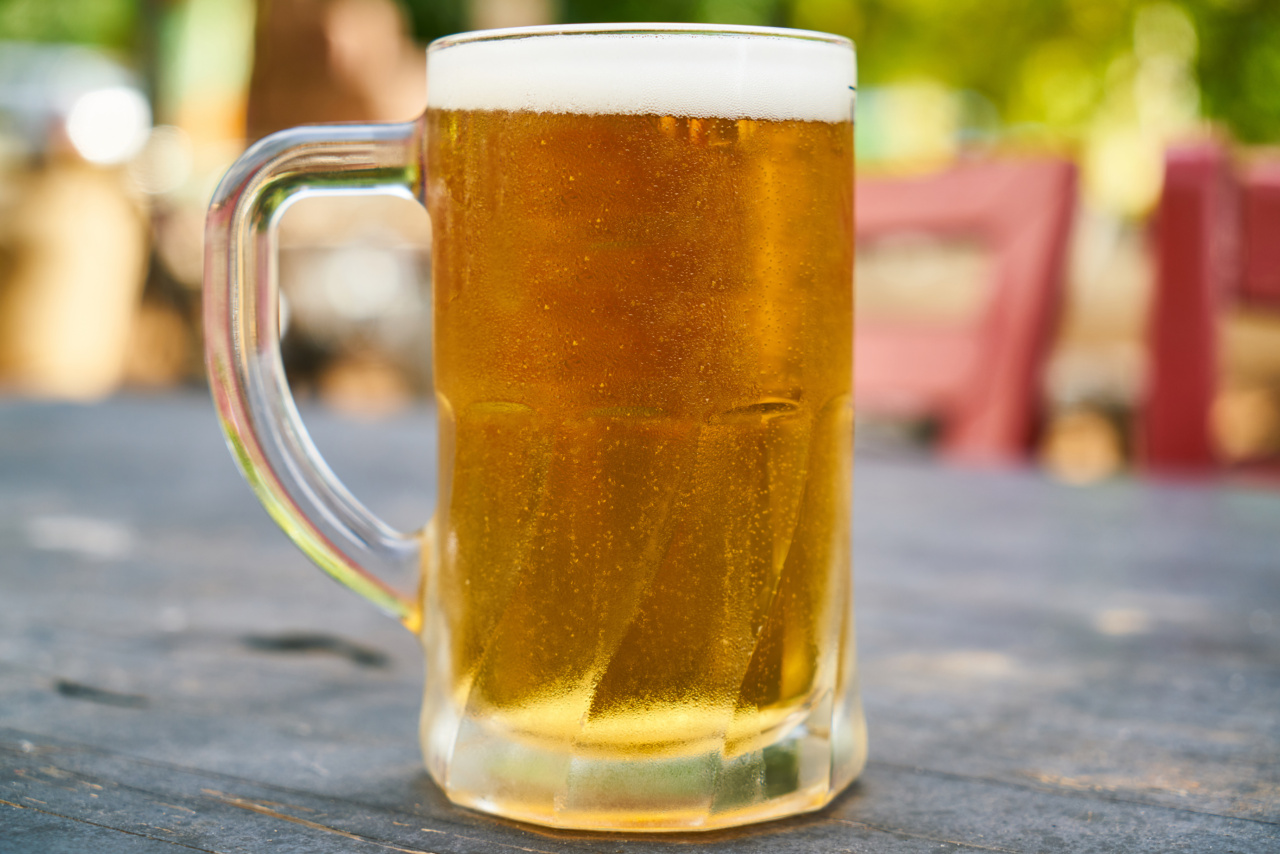Beer has been enjoyed by humans for thousands of years, with its origins dating back to ancient civilizations.
This alcoholic beverage is made through a process called fermentation, which involves the conversion of sugars into alcohol and carbon dioxide by yeast. One of the interesting aspects of beer is its foamy head that forms when it is poured into a glass. However, some individuals may experience stomach issues after consuming beer.
In this article, we will explore the science behind beer foam and its potential impact on stomach discomfort.
Understanding Beer Foam
When beer is poured into a glass, a foamy head of bubbles is created on top of the liquid. The formation of foam is influenced by several factors, including carbonation, fermentation, and the use of particular ingredients such as hops and yeast.
Carbonation plays a significant role in creating beer foam. During the fermentation process, yeast produces carbon dioxide as a byproduct. This carbon dioxide dissolves in the beer, creating the characteristic bubbles.
When the beer is poured into a glass, the sudden release of carbon dioxide forms the foam by trapping air within the liquid.
Fermentation is another crucial factor in the formation of beer foam. During fermentation, yeast consumes the sugars in the beer and produces alcohol and carbon dioxide.
This process not only contributes to the flavor and alcohol content of beer but also creates the carbonation necessary for foam formation.
The ingredients used in beer production, such as hops and yeast, can also affect the foam quality. Hops, which provide bitterness and aroma to beer, contain compounds that improve foam stability.
Yeast strains specifically selected for brewing can also influence foam characteristics, including its volume, stability, and texture.
The Role of Beer Foam in Stomach Issues
While beer foam can enhance the overall drinking experience, it may also contribute to stomach discomfort in some individuals. Excessive consumption of carbonated beverages, including beer, can lead to increased stomach gas and bloating.
The carbon dioxide present in the bubbles can cause distension of the stomach, leading to feelings of fullness and discomfort.
Additionally, some people may be more sensitive to the ingredients found in beer, such as gluten and certain proteins.
For individuals with sensitivities or intolerances, the consumption of beer can lead to digestive symptoms, including stomach pain, bloating, and diarrhea.
It is important to note that the aforementioned stomach issues are not solely caused by beer foam but can be attributed to various factors.
Factors such as the quantity of beer consumed, individual tolerance, and underlying digestive conditions can all play a role in the development of stomach discomfort after beer consumption.
Reducing Stomach Issues from Beer Consumption
If you enjoy beer but experience stomach discomfort after drinking, there are several steps you can take to reduce the likelihood of digestive issues:.
1. Moderation
Drinking beer in moderation can help minimize the chances of experiencing stomach issues. Consuming excessive amounts of any alcoholic beverage, including beer, can lead to digestive disturbances.
It is essential to be mindful of your alcohol intake and consume beer in moderation.
2. Choose Beer Wisely
If you are particularly sensitive to certain ingredients in beer, such as gluten, try opting for gluten-free beer alternatives.
Several breweries now produce gluten-free beer options, which can be a suitable choice for individuals with gluten intolerances.
3. Pay Attention to Carbonation Levels
Some beers are highly carbonated, while others have a milder carbonation level. If you find that excessive carbonation worsens your stomach discomfort, consider choosing beers with lower carbonation levels.
Experiment with different types and brands of beer to identify the ones that work best for you.
4. Eat Before Drinking
Having a meal or a snack before consuming beer can help slow down the absorption of alcohol and reduce the likelihood of stomach upset.
Eating a balanced meal with carbohydrates, protein, and healthy fats can aid in mitigating the effects of alcohol on your digestive system.
5. Stay Hydrated
Alcohol consumption can lead to dehydration, which can exacerbate digestive issues. Make sure to drink water alongside your beer to stay hydrated and support your body’s natural functions.
Conclusion
The formation of beer foam is a fascinating process that adds to the appeal of this popular beverage. However, for some individuals, the consumption of beer and its foam may result in stomach discomfort.
Understanding the science behind beer foam and the factors that contribute to its formation can provide insights into the potential impact on digestive health. By drinking beer in moderation, choosing the right type of beer, paying attention to carbonation levels, eating before drinking, and staying hydrated, individuals can reduce the likelihood of experiencing stomach issues after beer consumption.































